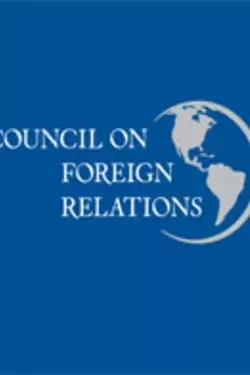Task Force Members:
J. BRIAN ATWOOD is dean of the Humphrey Institute of Public Affairs at the University of Minnesota. He served as the administrator of the U.S. Agency for International Development during the Clinton administration.
KENNETH H. BACON is the president and chief executive officer of Refugees International. Between 1994 and 2001, he served as the assistant secretary of defense for public affairs and Pentagon spokesman.
EDWARD P. DJEREJIAN is the founding director of the James A. Baker III Institute for Public Policy at Rice University. He has also served as the U.S. ambassador to Syria and Israel and was assistant secretary of state for Near Eastern affairs from 1991 to 1993.
JAMES F. DOBBINS is the director of RAND's Center for International Security and Defense Policy. He was ambassador to the European Community (1991-1993), special assistant to the president for the Western hemisphere (1996-1999), and assistant secretary of state for Europe (2001-2002). He served as the Clinton administration’s special envoy for Somalia, Haiti, Bosnia, and Kosovo, and most recently as the Bush administration’s special envoy for Afghanistan.
STANLEY FISCHER is the vice chairman of Citigroup and the president of Citigroup International. He has served as the first deputy managing director of the International Monetary Fund from September 1994 to August 2001 and as special adviser to the managing director from September 1, 2001 until January 31, 2002.
REND FRANCKE is currently the executive director of the Iraq Foundation. She has written extensively on Iraqi politics and is the co-author of The Arab Shia: The Forgotten Muslims, published in 2000.
BART FRIEDMAN is a senior partner at Cahill, Gordon and Reindel and serves on the Brookings Institution board of trustees.
CARL GERSHMAN has been the president of the National Endowment for Democracy since 1984.
JOHN C. HULSMAN is a research fellow in European Affairs, at the Davis Institute for International Studies at the Heritage Foundation.
JEANE J. KIRKPATRICK is a senior fellow at the American Enterprise Institute and professor emeritus at Georgetown University. She served as a U.S. permanent representative to the United Nations during the Reagan administration and was a member of President Reagan's cabinet and National Security Council.
ELLEN LAIPSON is the president and chief executive officer of the Henry L. Stimson Center. She worked on U.S. policy toward Iraq in the 1990s at the National Intelligence Council, the National Security Council, and the U.S. Mission to the United Nations. She served as vice chair of the National Intelligence Council from 1997 to 2002.
ROBERT A. MALLEY is the director of the International Crisis Group's Middle East Program. He was on the National Security Council (NSC) staff from 1994 to 2001. He finished his tenure at the NSC as special assistant to the president for Arab-Israeli Affairs.
PHEBE MARR is a leading specialist on Iraq and was a senior fellow at the National Defense University.
EDWARD L. MORSE is a senior executive adviser at Hess Energy Trading.
GREGORY S. NEWBOLD is the executive vice president and chief operating officer of the Potomac Institute for Policy Studies. A retired Lieutenant General, he was formerly the director of operations on the Joint Staff.
DIANE ORENTLICHER is a professor at American University's Washington College of Law.
JAMES A. PLACKE is currently a Senior Associate at Cambridge Energy Research Associates (CERA) and a nonresident senior fellow at the Brookings Institution. Previously, he was director for Middle East Research at CERA.
KENNETH M. POLLACK is a senior fellow in foreign policy studies and director of research at the Brookings Institution's Saban Center for Middle East Policy. He served as director for Persian Gulf Affairs at the National Security Council from 1999 to 2001.
ERIC P. SCHWARTZ, director of this Task Force, is a senior fellow at the Council on Foreign Relations. He was on the National Security Council staff from 1993 to 2001. He finished his NSC tenure as special assistant to the president for national security affairs and senior director for multilateral and humanitarian affairs.
JOHN M. SHALIKASHVILI is a visiting professor with the Institute for International Studies at Stanford University. After the 1991 Gulf War, he commanded Operation Provide Comfort, the international mission that provided humanitarian assistance and protection to Kurds in northern Iraq. He retired from the U.S. Army in 1997, after serving as chairman of the Joint Chiefs of Staff.
RICHARD H. SOLOMON is president of the United States Institute of Peace. He formerly served as assistant secretary of state for East Asian and Pacific affairs from 1989 to 1992.
GORDON R. SULLIVAN is the president and chief operating officer of the Association of the United States Army (AUSA). He served as co-chair of the Commission on Post-Conflict Reconstruction, a joint project of the Center for Strategic and International Studies and AUSA. He retired from the U.S. Army in 1995, after serving as the Army's 32nd chief of staff.
FRANK G. WISNER is vice chairman of external affairs at American International Group, Inc. Ambassador Wisner has served in a number of senior positions in the U.S. government, including undersecretary of defense for policy from 1993 to 1994, and undersecretary of state for international security affairs from 1992 to 1993.


 Online Store
Online Store